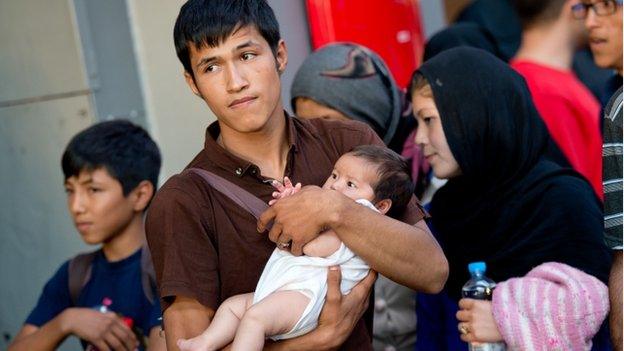Germany protests: Dresden marches against anti-Islamists Pegida
- Published
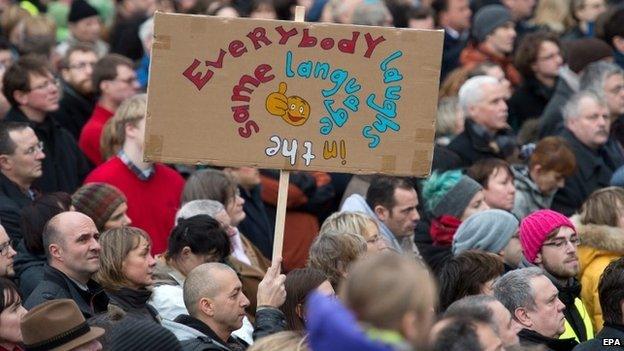
The protesters gathered in front of Dresden's Frauenkirche (Church of Our Lady) to call for "cultural openness, humanity and dialogue in co-operation"
About 35,000 people have marched through the German city of Dresden in protest against recent so-called anti-Islamisation rallies, organisers say.
The turnout is nearly double that of the largest demonstration by anti-Islamists Pegida, held last Monday.
Saturday's counter-demonstration observed a minute's silence for the 17 victims of this week's terrorist attacks in France.
The next Pegida protest in Dresden will be held on Monday.
Some analysts say that numbers may grow as a result of the violence in France.
'Come to us'
Demonstrators at the counter-rally on Saturday - which was jointly organised by the government of the state of Saxony and the city of Dresden - were joined by Saxony State Premier Stanislaw Tillich.
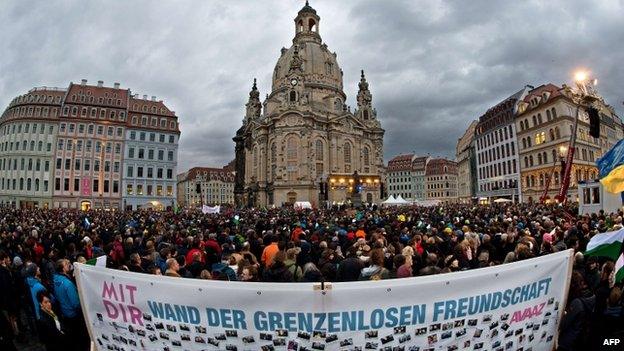
A banner reading "Wall of friendship without borders" can be seen in the foreground of the protest
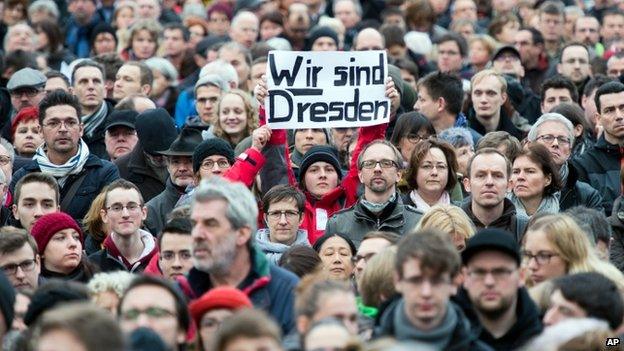
The counter-demonstration was jointly organised by the government of the state of Saxony and the city of Dresden
"Thirty-five thousand people [have] attended this event, and they made clear that they love this city and that they're proud of this city, and that this is a tolerant and cosmopolitan city," he said.
Likewise Dresden Mayor Helma Orosz urged supporters of Pegida (Patriotic Europeans against the Islamisation of the West) to change their minds and join the campaign against racism.
"I believe that this is a clear sign that our society is standing together, and furthermore that we're not forgetting those who are afraid, those who might march with Pegida on Monday," she said.
"We're not abandoning them, we're inviting them to come to us."
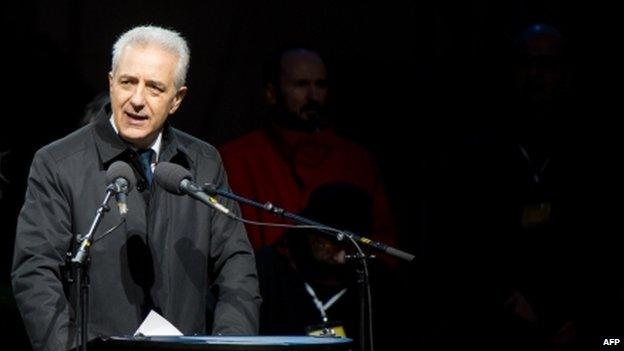
Saxony's State Premier Stanislaw Tillich said that the rally showed that Dresden is a tolerant and cosmopolitan city
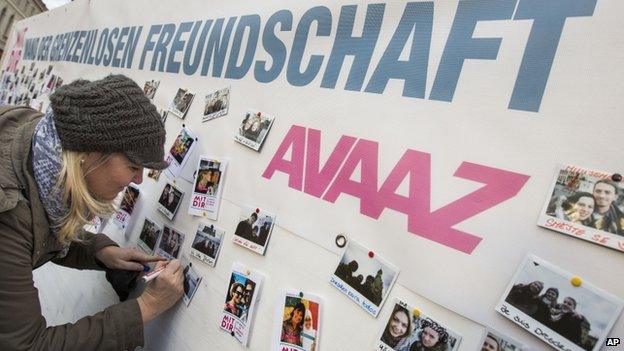
Protesters at the counter-demonstration were invited to write messages on the "Wall of Love"
One unnamed protester told the BBC that the object of the demonstration was to make clear that Dresden was "a tolerant city open to anyone".
Pegida has been condemned by many mainstream politicians and large counter-demonstrations have also been held in Berlin, Cologne and Stuttgart.

What is Pegida?
Founded in Dresden by activist Lutz Bachmann in October 2014
Acronym for Patriotische Europaer Gegen die Islamisierung des Abendlandes (Patriotic Europeans Against the Islamisation of the West)
Umbrella group for German right-wing, attracting support from mainstream conservatives to neo-Nazi factions and football hooligans
Holds street protests against what it sees as a dangerous rise in the influence of Islam over European countries
Claims not to be racist or xenophobic
19-point manifesto, external says the movement opposes extremism and calls for protection of Germany's Judeo-Christian culture
- Published6 January 2015
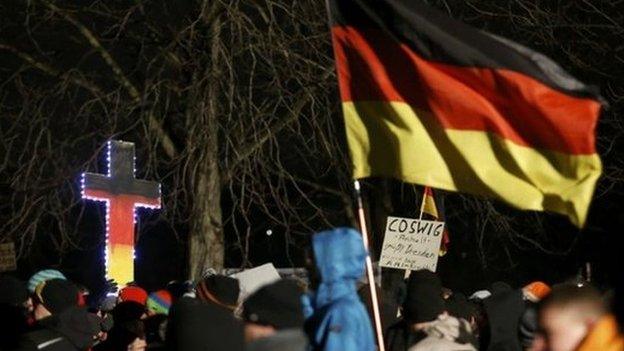
- Published23 December 2014
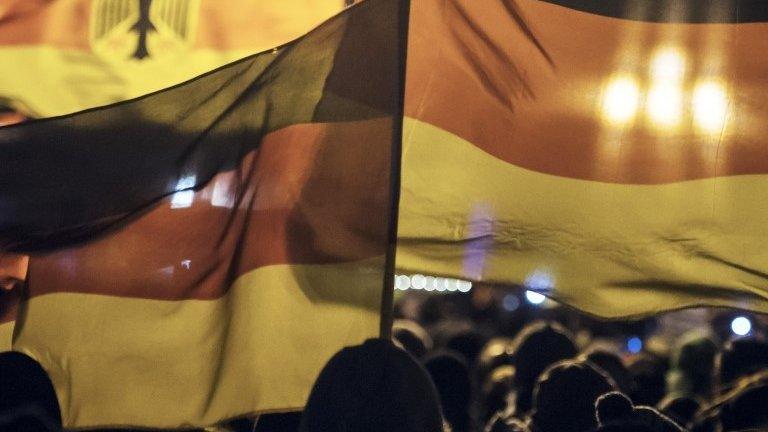
- Published11 January 2015

- Published9 December 2014
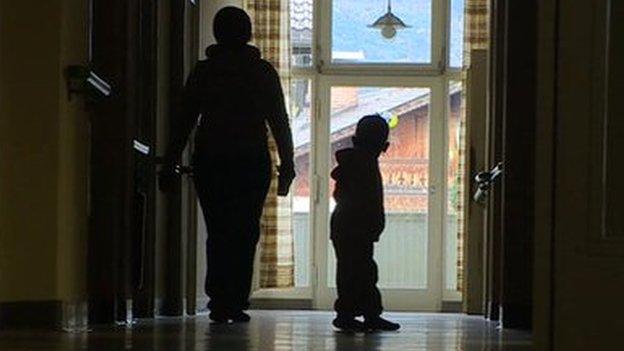
- Published24 December 2014
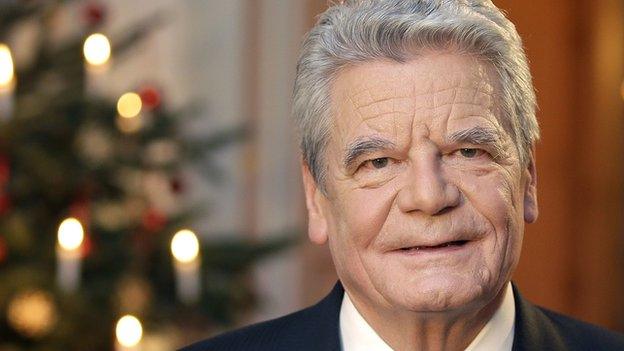
- Published3 March 2016
